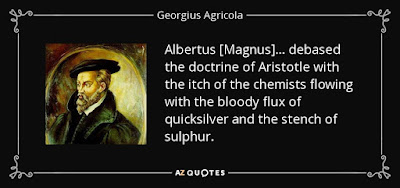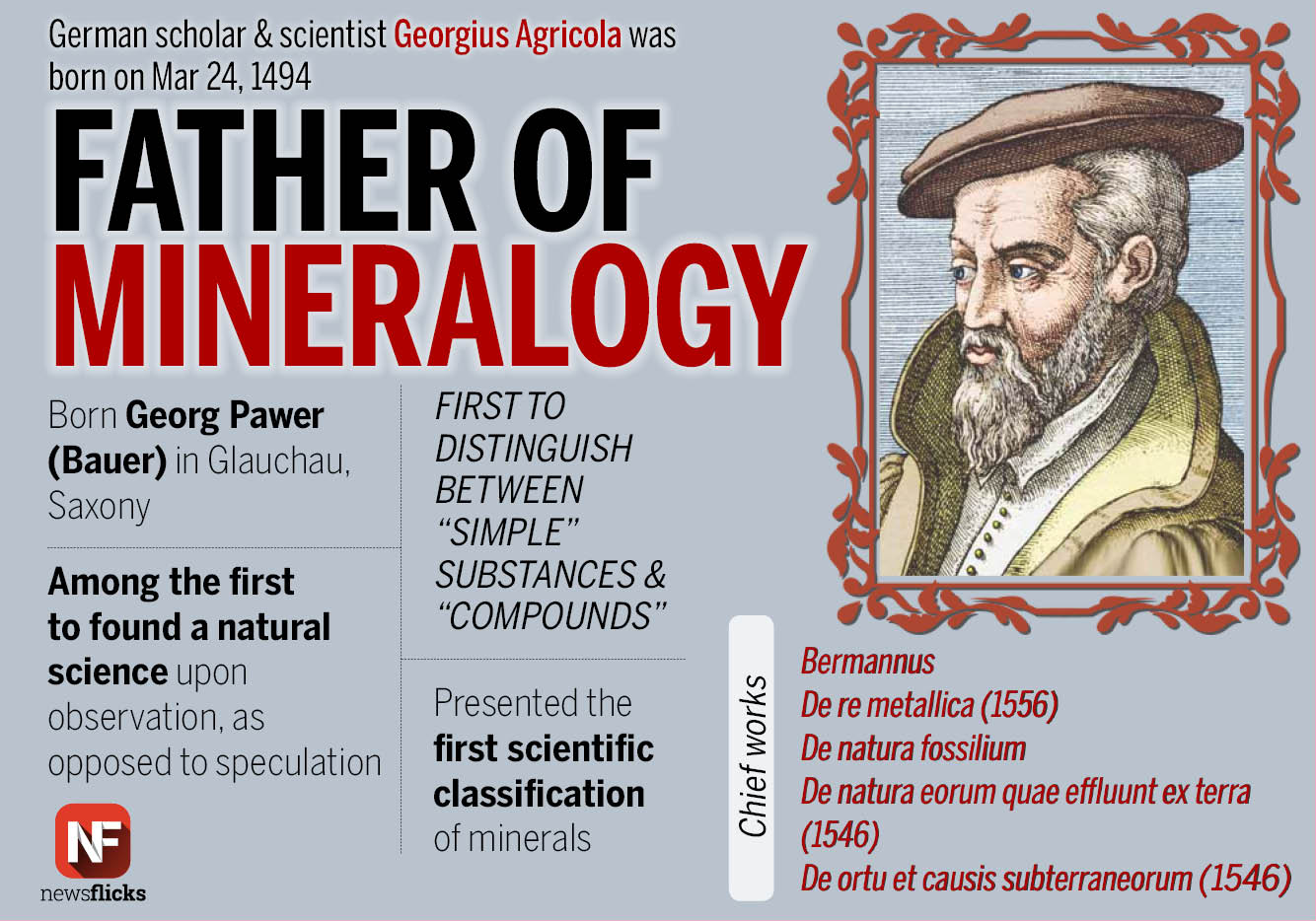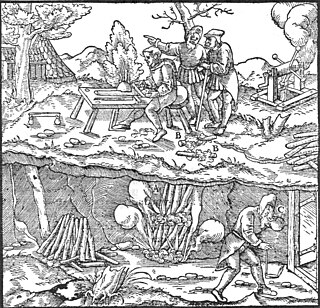Today (March 24, 1494) is the birthday of the father of mineralogy, the German scientist of Georgius Agricola.

Georgius Agricola was born on
March 24, 1494, in Germany. The name Georgius Agricola is the Latin form of his
native name "Church Boyer". From 1514 to 1518 he studied classical
literature, philosophy, and linguistics at the University of Leipzig. He then
formed his name in the Latin form, as was the custom of the time. From 1518 to
1522 he studied Latin and Greek at a school called Suvica. He then returned to
Ilepsik and began studying medicine. But due to the theological battles that
took place there, the university could not continue and he could not continue
to do so. He was a devout Catholic and arrived in Italy in 1523 in good
condition. There he studied medicine, natural sciences, and philosophy in Balochistan
and Padua. He completed his medical laboratory studies in Venice.

He worked for two years at the
Aldine Press in Venice and produced a collection of medical books by Callen. It
was published in 1525. He collaborated with Thomas Moore and his secretary, San
Clement, on this task. He must have been fascinated by Moore's
"Utopia". This helped him to study law and social customs while he
was in the Saxon mining district. He met Erasmus, the great scholar of
physiology, and became his friend. Erasmus inspired Agricola to write several
books. He published many of Erasmus' novels. Erasmus wrote the foreword to
Hermanus, Agricola's book on mineralogy. Agricola, along with three other
scholars, received this accolade only.

He returned to Saxon in 1526 and
worked as a city physiotherapist in Joachimstall from 1527 to 1533. The city is
located in one of the most metallic mining districts in Europe. He went to
various mines and smelters throughout the district to discover new drugs from
the minerals and got acquainted with well-educated miners. Learned all the
texts written by the old novelist of mineralogy. This habit helped to shape his
later life and writings. This knowledge can be seen blazing in the writings of
Hermanus and Sivetri Metalia.

In his book, you will find many
references to the diseases of the mining industry. He became a city
physiotherapist in 1532 and became a city physiotherapist in 1532. He authored
several books, including 12 volumes on Trimethalia (mineralogy, metallurgy,
geophysics), ten volumes on the dinosaur Fossilium (on mineralogy), and 5
volumes on the Diorduet Kallis subdivision (on geophysics).

He began his public life at the
age of 52 as a burqa (city councilor). Chemnitz later rose to become the
Burgomaster (mayor). Herbert Heaver (later President of the United States of
America), an American mining engineer, translated his novel Trimetalia in 1912.
In his book, he praises Agricola as the pioneer who invented the methodological
approach to science. Agricola, a pioneer of natural sciences, passed away on
November 21, 1555, in Germany.
Source By: Wikipedia
Information: Dr. P. Ramesh, Assistant
Professor of Physics, Nehru Memorial College, Puthanampatti, Trichy.
.png)
.png)
.jpg)
No comments:
Post a Comment